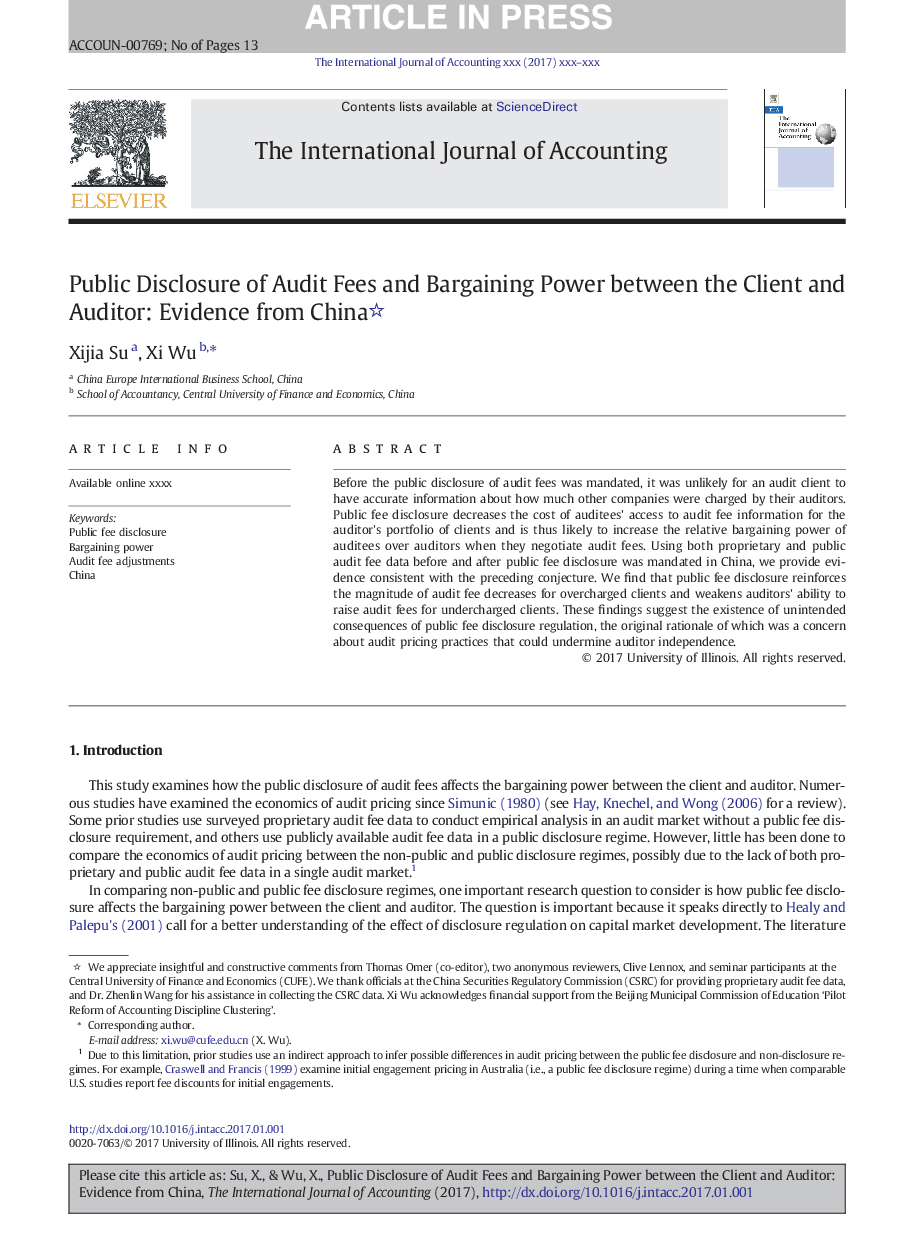ترجمه فارسی عنوان مقاله
افشای عمومی حسابرسی و اختلاف میان مشتری و حسابرس: شواهدی از چین
عنوان انگلیسی
Public Disclosure of Audit Fees and Bargaining Power between the Client and Auditor: Evidence from China
| کد مقاله | سال انتشار | تعداد صفحات مقاله انگلیسی |
|---|---|---|
| 90801 | 2017 | 13 صفحه PDF |
منبع

Publisher : Elsevier - Science Direct (الزویر - ساینس دایرکت)
Journal : The International Journal of Accounting, Volume 52, Issue 1, March 2017, Pages 64-76
ترجمه کلمات کلیدی
افشای هزینه عمومی، قدرت چانه زنی، تنظیم هزینه های حسابرسی، چین،
کلمات کلیدی انگلیسی
Public fee disclosure; Bargaining power; Audit fee adjustments; China;
ترجمه چکیده
قبل از افشای افشای عمومی هزینه های ممیزی مجاز بود، بعید به نظر می رسید که یک مشتری حسابرسی دارای اطلاعات دقیق در مورد چگونگی حساب های دیگر شرکت ها باشد. افشای هزینه های عمومی هزینه های دسترسی حسابرسان به اطلاعات حسابرسی حسابرسی را برای نمونه کارهای مشتریان حسابرسی کاهش می دهد و بنابراین در صورت مذاکره در مورد حسابرسی هزینه های حسابرسی را افزایش می دهد. با استفاده از داده های حسابرسی اختصاصی و عمومی قبل و بعد از افشای هزینه های عمومی در چین مجاز شدیم، شواهدی را مطابق با فرضیه قبلی ارائه می کنیم. ما دریافتیم که افشای هزینه های عمومی باعث افزایش میزان هزینه های حسابرسی برای مشتریان بیش از حد شده و ضعف توانایی حسابرسان برای افزایش هزینه های حسابرسی برای مشتریان تحت فشار است. این یافته ها حاکی از وجود عواقب ناخواسته تنظیمات افشای هزینه های عمومی است که دلیل اصلی آن نگرانی در مورد شیوه های ارزیابی حسابرسی است که می تواند استقلال حسابرس را تضعیف کند.

